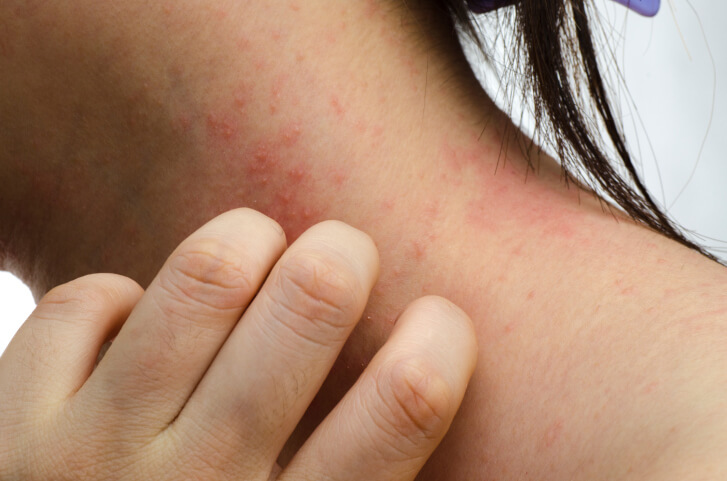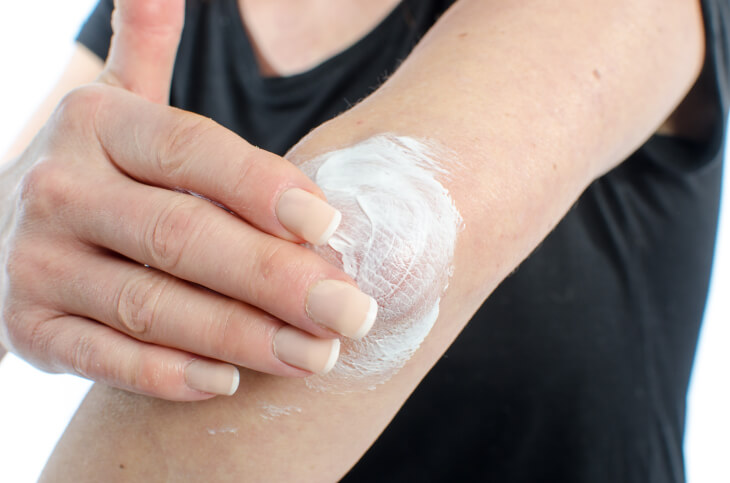Understanding Dermatitis

Characterized by itchy, erythematous, vesicular, weeping and crusty patches on the skin, dermatitis can be of different types. The term dermatitis may also refer to eczema. A diagnosis of eczema may often imply atopic dermatitis.
Common symptoms related to different types of eczema are:
- Red rash or bumps
- Itching that is severe
- Dry, cracked, scaly skin, if the condition is chronic
- Blisters, draining fluid and crusting, if the reaction is severe
- Swelling, burning or tenderness
Each type of dermatitis looks different from the other and may tend to occur on different parts of the body. Some common types of dermatitis are:

• Contact dermatitis: When the body comes in contact with foreign substances, such as poison ivy, it can irritate the skin or cause allergic reactions leading to rashes. The rash can turn red and start burning, itching or stinging. Sometimes, it can develop into blisters.
 • Seborrhoeic dermatitis: This condition causes scaly patches, red skin and a bad case of dandruff. Oily areas of the body, such as the face and the upper chest or back are the areas that are usually affected. This condition can stretch over the long term with periods of remission and flare-ups. In infants, this condition is known as cradle cap.
• Seborrhoeic dermatitis: This condition causes scaly patches, red skin and a bad case of dandruff. Oily areas of the body, such as the face and the upper chest or back are the areas that are usually affected. This condition can stretch over the long term with periods of remission and flare-ups. In infants, this condition is known as cradle cap.Solutions for treating dermatitis:
1. Wearing non-irritating clothing. Loose-fitting clothing should be worn whenever possible and irritating fabrics that rub against the skin should be avoided. Clothing made of cotton, silk and even bamboo can be worn as these are smooth textured. While exercising, clothes designed to keep the skin cool should be worn as these will prevent excess sweat that can aggravate the eczema.
2. Avoiding harsh soaps and shampoos. These should be avoided because the strong chemicals that go into producing them can lead to itchy skin. Detergents containing harsh chemicals should be avoided and one should wear gloves before using any such soap while cleaning and washing. During a bath, the temperature of the water needs to be taken care of to prevent inflammation of the skin. Do not use very hot water.

4. Meditation can be a key factor in keeping stress levels at bay.
5. Use of moisturizing agents after a bath. Organic “cold pressed” coconut oil can be used as a moisturiser so that the skin does not dry up easily.
6. Drinking plenty of water. This helps the skin stay hydrated. Eating foods that contain omega 3 fatty acids and vitamins also help maintain skin integrity.














